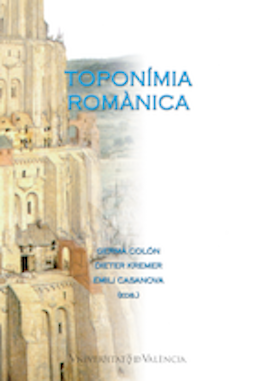Contributions of toponymy to the investigation of the history of Spanish lexis
DOI:
https://doi.org/10.7203/qfilologia.20.7514 Abstract
Abstract
Place names contain, in fossilized form, abundant lexical information that can be used to supplement the historical record of the living language reflected in texts. By studying place names specific aspects of the history of lexicon can be investigated, such as chronological details of the historical development of words, the existence of phonetic variants and derivatives, changes in the geographic distribution, among others. Sometimes proper names even attest lexical items never documented as common nouns. In order to explain the principles on which this research should be based we will study a number of cases of place names based on Castilian, highlighting (not without warning of the difficulties involved in the subject) the contribution of the material examined to the history of Spanish lexicon and to etymology.
Keywords: Historical lexicology; etymology; lexicography; Spanish lexicon.
 Downloads
Downloads
Downloads
Published
How to Cite
-
Abstract615
-
PDF (Español)1395
Issue
Section
License
 Este obra está bajo una licencia de Creative Commons Reconocimiento-NoComercial-SinObraDerivada 4.0 Internacional.
Este obra está bajo una licencia de Creative Commons Reconocimiento-NoComercial-SinObraDerivada 4.0 Internacional.
Authors who publish with this journal agree to the following terms:
- Authors retain copyright and grant the journal right of first publication with the work simultaneously licensed under a Creative Commons Attribution License that allows others to share the work with an acknowledgement of the work's authorship and initial publication in this journal.
- Authors are able to enter into separate, additional contractual arrangements for the non-exclusive distribution of the journal's published version of the work (e.g., post it to an institutional repository or publish it in a book), with an acknowledgement of its initial publication in this journal.
- Authors are permitted and encouraged to post their work online (e.g., in institutional repositories or on their website) prior to and during the submission process, as it can lead to productive exchanges, as well as earlier and greater citation of published work (See The Effect of Open Access).




